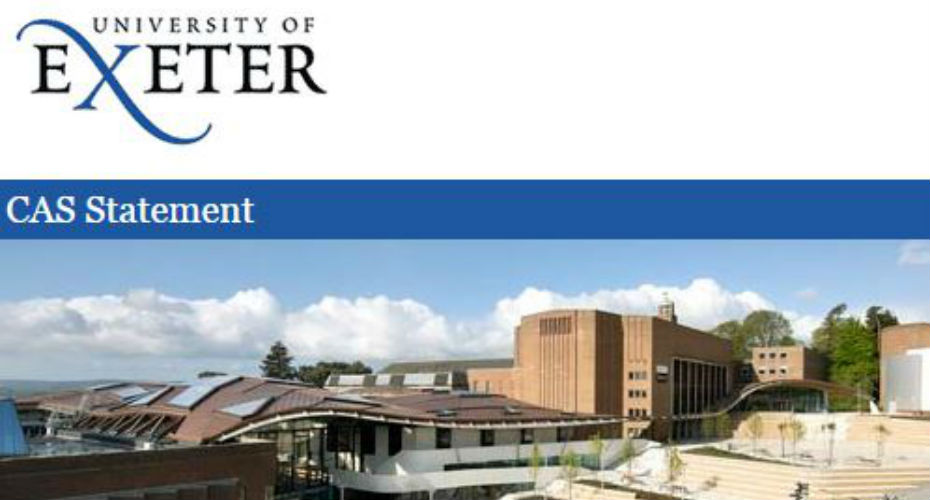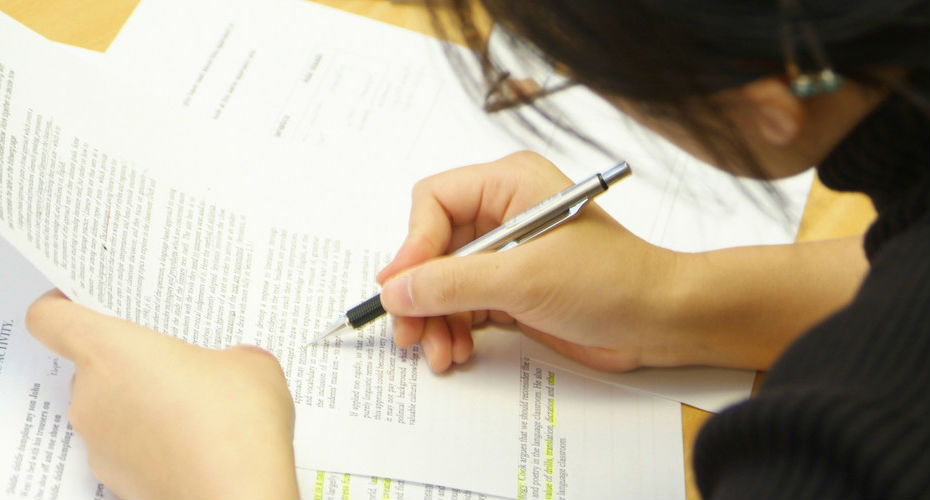Student visa - Money
Money
Money
Money
Money
In most cases, UK Visas and Immigration need to see that you have enough money to support yourself while studying in the UK. This is in addition to the cost of applying for a Student visa. If you are applying with your family please see our section on Dependants.
Exemptions
You are exempt from the Finance requirement if you have lived in the UK with a valid visa for the 12 months before you submit your visa application and are making your visa application from inside the UK. If you are in this situation, you do not need to deposit money or provide evidence of your finances for your visa application. This is because UK Visas and Immigration consider that you have already proved that you can support yourself in the UK.
All other students, including all students applying applying outside the UK, must meet the Finance requirement.
Differentiation arrangements
Even if you are not exempt from the Finance requirement, you may be allowed to submit your visa application without Financial evidence. Nationals of certain countries qualify for differentiation arrangements (see link for the full list and more information). If you qualify for differentiation arrangements, you do not need to submit evidence of money with your initial visa application. However, you must still meet the Finance requirement at the point that you submit your visa application online. For most students, this means that you must have had the required money in a bank account for at least the past 28 days. UK Visas and Immigration can request that you submit full documents proving that you qualified on the date of application at any point during application process.
Student visa finance calculations
To work out how much money you need to deposit:
| Your first year's tuition fees | as shown on your CAS |
| + | |
| Your living expenses | £1,023 per month for the length of your course (up to a maximum of 9 months). If your course lasts 9 months or longer you will need £9,207 |
| = | The total amount of money you need to show |
Deductions for Fees paid to the University
You may deduct some money from the total amount you need to show:
| Tuition fees paid | You can deduct any money you have already paid towards tuition fees from the total tuition fee amount, as long as the payment is shown on your CAS statement. |
| Accommodation fees paid | If you make a payment for accommodation to the University of Exeter or INTO Exeter and this is stated on your CAS, you can deduct the amount paid from the total for living expenses but only up to a maximum of £1,334. For example if you have paid £5,000 and this is stated on your CAS, you can only deduct £1,334. You cannot deduct money you have paid for private accommodation. |
Example 1: You are a new MSc Finance and Investment student. Your tuition fees are £15,500 for the whole 1 year programme. You have paid £2,000 tuition fee deposit.
You will need to show:
£15,500 - £2,000 = £13,500 for tuition fees
+
£9,207 (£1023 x 9 months - remember, 9 month maximum) for living expenses
TOTAL: £22,707
Example 2: You are a new INTO Pre-sessional student. Your course dates are 4 July - 9 September. You need to show living expenses for every month (or part month) of your course, so for visa purposes your course is 3 months long. Your course fees are £3,300 but you have paid them all. You have also paid £2,060 for accommodation.
You will need to show:
£3,300 - £3,300 = £0 to show for course fees (you have paid them!)
+
£3,069 (£1023 x 3 months) - £1,265 = £1,804
TOTAL: £1,780
Example 3: You are a PhD student who has already started your first year. Your tuition fees are £11,100 and you have paid £3,700 for the first term. You are living in a rented house off campus and have paid the landlord £6,000 for the whole year.
You will need to show:
£11,100 - £3,700 = £7,400
+
£9,207 (£1023 x 9 months, remember you cannot deduct private accommodation!)
TOTAL: £16,607
Evidence of money
How you show evidence of your money depends whether you pay your own expenses or you have an official financial sponsor.
Remember that some students qualify for ‘differentiation arrangements’ which means that you do not need to submit evidence of money with your visa application. Check here to see if this applies to you.
You can show this money in a number of ways:
The money must be cash funds held in an account that allows you immediate access. The money can be held in a personal account including a current or savings, deposit or investment account in your name or that of your parent. Joint accounts in your name and one other named individual are acceptable. You must hold the money in the account for at least the 28 days before you submit your Student visa application (see below). You can use your bank account during the 28 days but the balance must not fall below the required amount.
Your bank document must show the transactions and balance during the 28 day period. The date on your bank document may be up to 31 days before the date of application but the money must remain in your account until the date of application.
Full details of the financial requirement can be read on the UKVI website.
Date of application
- For applications made inside the UK: the date you submit your online form
- Applications made outside the UK: the date you pay the application fee (online or at a visa application centre)
Currency
If the currency is not in British Pounds (GBP), you should check the conversion of the final balance on the Oanda website on the date of application and write this on the bank statement.
Acceptable financial institutions
In order for a bank to meet UKVI requirements all of the following need to apply:
-
The Home Office is able to make satisfactory verification checks of the overseas bank;
-
The overseas bank is regulated by the appropriate regulatory body in the respective overseas country;
-
The overseas bank uses electronic record keeping
Bank statements
Your bank statement should:
- show the date it was issued. This must be no more than 31 days before the date of application
- show the money has been held for 28 days
- include at least your name or the account holder's name, account number and all transactions over the 28 day period
- be on original stationary or electronic record and show the name of the bank
- be in English – you will need an official translation in addition to the original if it is not.
Parents’ bank account
If you use your parents’ bank statements, they must meet all of the above rules (you cannot submit payslips or proof of property instead, for example) and you must also include:
- your birth certificate with an official translation if it is not in English
- a letter from your parents (in English) confirming that the funds in their bank account will be used to pay for your tuition fees and living expenses
Example Parental Consent Letter
Bank letters
If your bank statement does not meet the above rules you can request a letter from the bank instead. A bank letter should:
- include your name or account holder's name and account number
- include the date of letter (no more than 1 month old)
- include the bank’s name
- clearly state the amount of money in the account
- confirm that the required amount has been in the account for at least 28 days.
Certificates of deposit
This is a document issued by a bank which confirm a deposit of money and needs to meet the following rules:
- must have been issued within 31 days of the date of application
- at least 28 days must have elapsed between the date of the deposit and
- it must include the date of issue of the certificate
You are officially sponsored if your government, an international company, a University (including Exeter), or a scholarship provider pays for your studies.
Sponsor letter
The letter should:
- be dated and printed on official letterheaded paper
- include the name and contact details of the sponsor
- show your name and confirm the duration of the sponsorship
- confirm the amount of money provided or state that the sponsor will cover all the tuition fees and living costs for the programme (if specified).
If you are fully sponsored by the University of Exeter with a studentship described on your CAS you will not need a letter
If your official sponsor pays for only part of your costs you must supplement the letter with a bank statement or letter. You cannot rely on the same money twice, so it must be clear that this money has been received from a source other than your sponsorship
Only loans provided by your national government, state or regional government, a government sponsored student loan company or an academic or educational loans scheme are acceptable.
Student Loan Letter
The loan letter must:
- be dated no more than 6 months before the date of application
- be on official stationary
- confirm the loan is a student loan provided by either the relevant government or a government sponsored student loan company or an academic or educational loans scheme
- confirm there are no conditions on release of the loan funds other than a successful application to sutdy in the UK
- confirm the amount of the loan
- confirm the loan is for you (loans in the name of parents are not acceptable)
- confirm the funds will be available to you before you begin your course or are paid directly to the University (e.g. US loan system)
US students: All Direct Federal aid and Private US loans are administered by the Student Funding Team. You can find full information here including how to apply and when to expect your loan award letter. The Student funding team can be contacted at usloanfunding@exeter.ac.uk or +44 1392 724724 from outside the UK or 0300 555 0444 from the UK.
If any of your documents are not in English you will need to provide a fully certified translation by a professional translator or translation company.
Any translations you submit with your application must include the following:
- Confirmation that it is an accurate translation of the original document
- The date of the translation
- The full name and signature of the translator or an official from the translation company
- The contact details of the translator / translation company
Costs
|
Immigration Health Surcharge (IHS): Compulsory, entitles you to access to National Health Service (NHS) |
£776 per person, per year of your visa. You will be charged £338 for part of a year under 6 months and £776 for part of a year over 6 months. Use the IHS calculator to estimate how much you will be charged. There are limited circumstance where you will be eligible for a refund, please read the IHS webpage for details. |
|
Application fee: Prices increase for premium applications to receive a quicker decision |
Outside UK: £490 (standard) Inside UK: £490 (standard), £990 (priority), super priority may be available |
|
Additional charges: Biometrics appointment at a UK Visa Application Centre |
Outside UK: country specific Inside UK: Free appointments are available at some centres. Charged appointments cost from £139 depending on the location and time of appointment. |

» CAS & Qualifications
Describes how you meet the visa conditions using your unconditional offer and previous qualifications.


